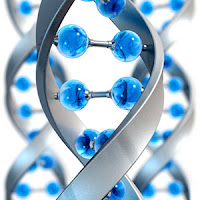Oppositional Defiant Disorder and Biology
Is the cause of Oppositional Defiant Disorder biological?
There appears to be no single cause that produces Oppositional Defiant Disorder (ODD); however, researchers do agree that there is a strong genetic and biological influence involved.
Research suggests that behavioral problems in ODD kids may occur as the result of defects in - or injuries to - the brain.
Oppositional Defiant Disorder is associated with abnormal amounts of neurotransmitters (i.e., chemicals that enhance communication among neurons in the brain). If these chemicals are out of balance or not working properly, messages may not make it through the brain correctly, leading to symptoms of Oppositional Defiant Disorder, and other mental illnesses.
Other biological factors found in those diagnosed with Oppositional Defiant Disorder is (1) a difficult temperament, (2) above normal levels of testosterone, and (3) low physiological arousal (i.e., under-arousal) in response to stimulation.
Several theories have tried to explain why under-arousal may be associated with increased behavior problems. Some researchers suggest that under-arousal results in sensation-seeking and perhaps in disruptive behaviors to maintain optimal arousal. Others have suggested that the under-arousal results in an under-reaction of guilt or anxiety, which in turn would inhibit these behaviors in typically developed children. A third theory suggests that both under-arousal and aggressive behaviors are results of deficiencies in the functioning of the prefrontal cortex, limiting the child’s reasoning, foresight, and ability to learn from experience.
Many kids and adolescents with ODD also have other mental illnesses (e.g., ADHD, learning disorders, depression, anxiety disorder), which may contribute to their behavior problems.



